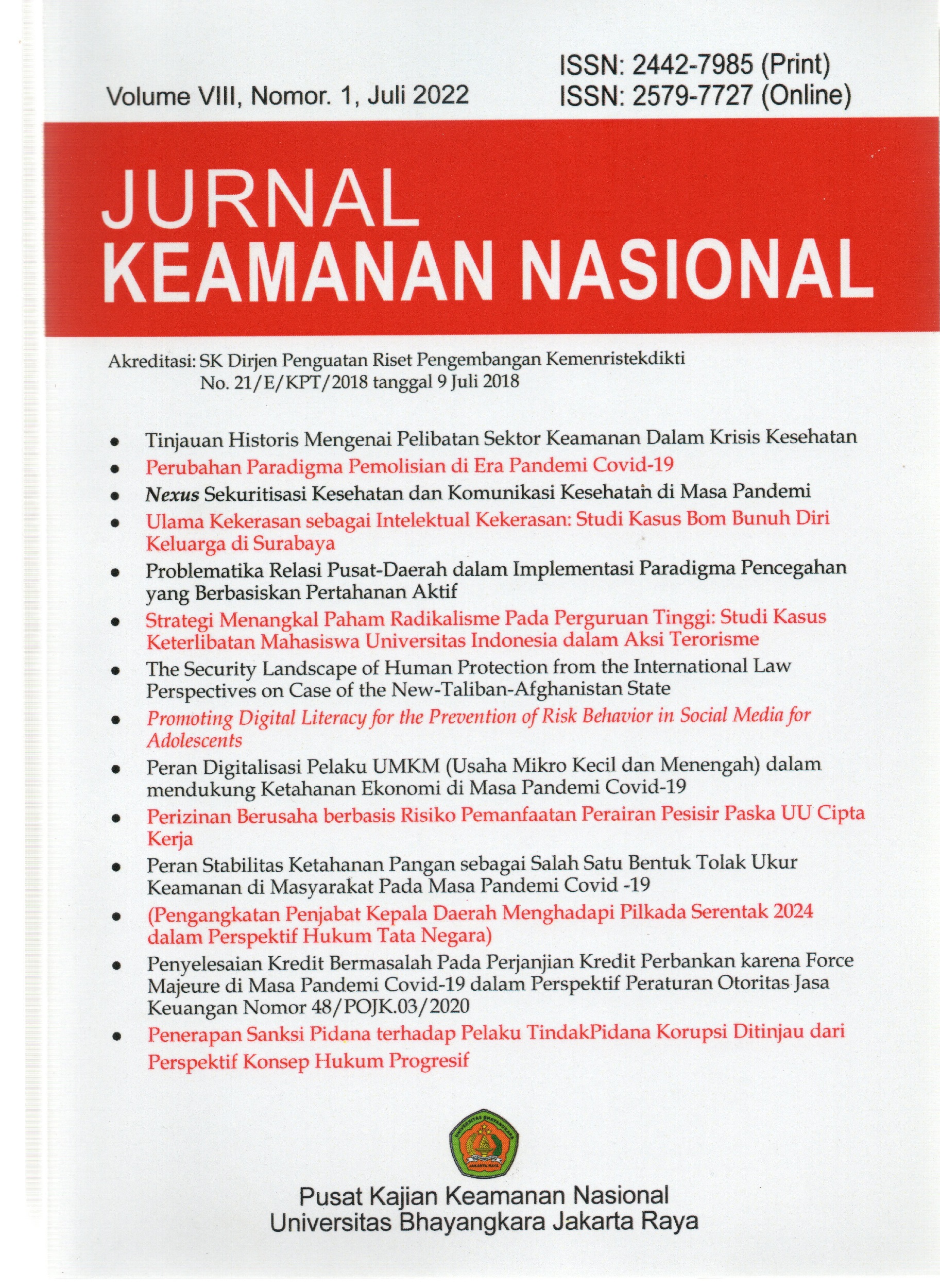Pengangkatan Penjabat Kepala Daerah Menghadapi Pilkada Serentak 2024 dalam Perspektif Hukum Tata Negara)
DOI:
https://doi.org/10.31599/4hg54a38Keywords:
Acting Regional Heads, Simultaneous Regional Head Elections, Constitutional LawAbstract
This research investigates the appointment of acting regional heads in preparation for the 2024 simultaneous regional head elections from a constitutional law perspective. Given the urgency of the matter, the study delves into various crucial aspects, including the ramifications of the absence of Government Regulations, transparency issues, and the appointment of active TNI and POLRI members as acting regional heads. Key research questions include analyzing the appointment process vis-à-vis constitutional law and assessing the legality of appointing military and police personnel as acting regional heads according to statutory regulations. Conducted as a normative juridical inquiry, the research utilizes primary, secondary, and tertiary legal resources. Methodologically, legal materials are gathered through literature review and processed via inventory, identification, categorization, and systematization, employing a qualitative juridical approach for analysis. The study concludes that while the formal or textual process of appointing acting regional heads aligns with specific legal provisions, it falls short in adhering to fundamental constitutional principles such as the rule of law, democracy, legality, and regional autonomy. Moreover, it highlights deficiencies in transparency, openness, and accountability, essential elements of good governance and state administration. Additionally, the appointment of military and police personnel as acting regional heads is deemed unlawful, violating pertinent laws and a Constitutional Court decision.
Downloads

Downloads
Published
Issue
Section
License
Please read and understand the copyright terms for submissions to this journal.
Copyright Notice
The Jurnal Keamanan Nasional is under the Creative Commons Attribution 4.0 International (CC-BY 4.0) License, according to which:
1) Authors retain copyright and grant the journal the right to first publication, with the work simultaneously licensed under the Creative Commons Attribution (CC-BY 4.0) that allows the sharing of articles published with the acknowledgement of authorship and the initial publication in this journal.
2) The authors are authorized to make additional contracts separately for distribution of the version of the work published in this journal (for example, publication in an institutional repository or as a chapter of the book), as long as there is recognition of authorship and initial publication in this journal.
3) Authors are authorized and encouraged to publish and distribute their work online (for example, in institutional repositories or on their personal pages) at any time before or during the editorial process, as it increases the impact and reference of the published work.












